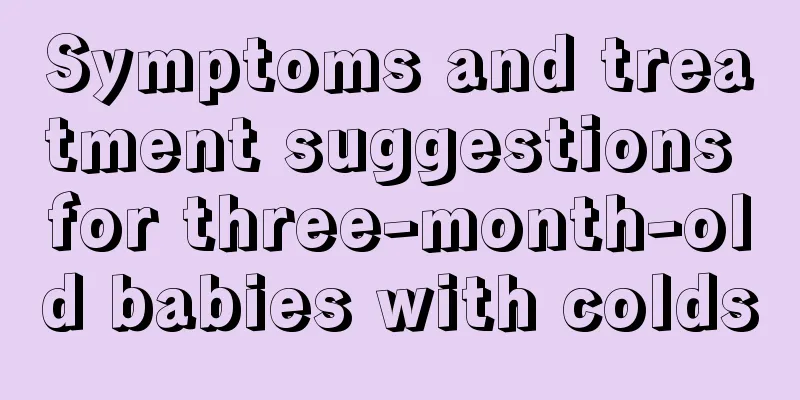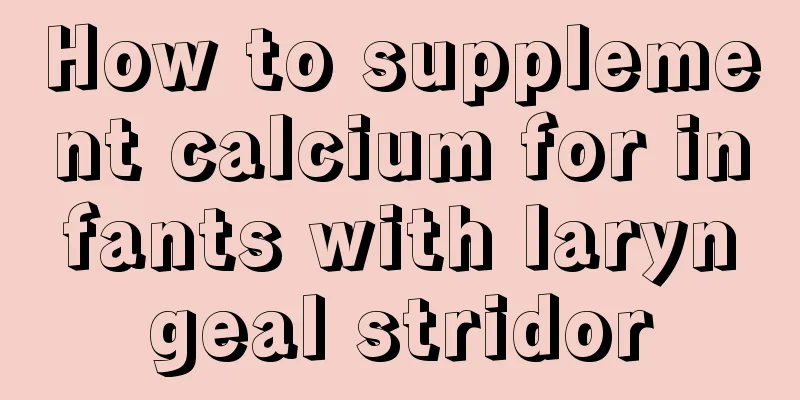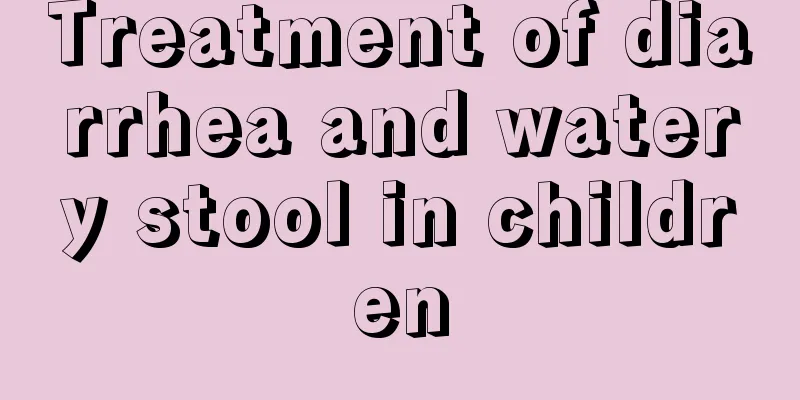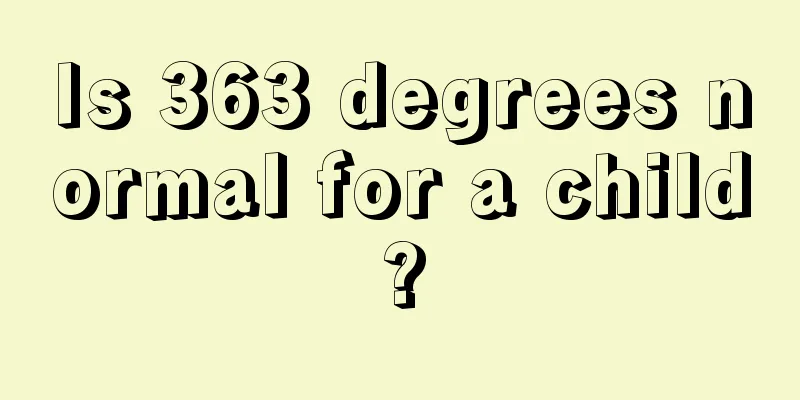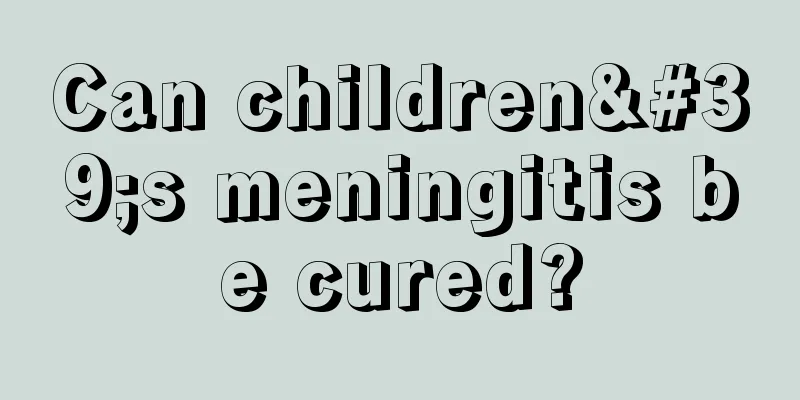Is baby antidiarrhea milk powder good?
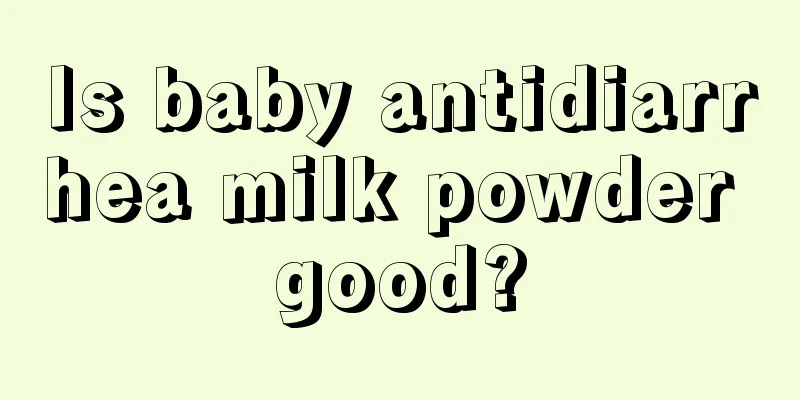
|
Many children have incomplete intestinal development when they are young, and diarrhea is very likely to occur at this time. If a child has diarrhea, then the milk powder that the child had eaten before cannot be eaten. It is necessary to stop eating and give the child anti-diarrhea milk powder, so that better results can be achieved. If a child has diarrhea, it will cause great damage to the intestines. If a child has diarrhea frequently, it is easy to become dehydrated, so it is necessary to treat the child in time. At this time, many people will choose to use anti-diarrhea milk powder to treat the child. So is it good for babies to eat anti-diarrhea milk powder? Mild diarrhea: The baby has 3 to 10 bowel movements a day, which are yellow or green in color, thin and mushy or egg drop soup-like, with white or yellowish-white curds or foam, a sour taste, and occasional nausea and vomiting. The baby is in good spirits, has slightly lost weight, and his body temperature is mostly normal, with occasional low fever and no obvious symptoms of dehydration. This situation is mostly caused by non-bacterial infectious diarrhea due to improper eating, indigestion or cold. Moderate to severe diarrhea: In addition to being related to bacterial infection, it may be caused by the aggravation of mild diarrhea. If your baby has frequent bowel movements, he may have ten to dozens of bowel movements a day. The stool contains more water and occasionally contains mucus, which is yellow or yellow-green in color and has a fishy odor. If diapers are not changed in time, the skin on the buttocks will often be corroded, the epidermis will peel off and turn red. Loss of appetite, often accompanied by vomiting. Most cases have irregular low-grade fever, and severe cases have high fever. All of the above conditions may be caused by bacterial infection. Infectious diarrhea is often caused mainly by pathogenic microorganisms. Physiological diarrhea: Some babies, especially those who are exclusively breastfed, will defecate 5-10 times within 24 hours after feeding. The stools are loose and contain milk lumps or a small amount of mucus. Except for diarrhea, the baby had no other abnormal conditions. He was in good spirits, had a normal appetite, slept well, gained weight at a normal rate, showed no signs of dehydration, and had no abnormalities in stool tests. In addition, some physiological diarrhea may be caused by inadaptation to new food, which usually occurs when changing milk powder or improper diet. Parents don’t need to worry about this. As long as you take good care of the baby and the baby gradually adapts to the change in milk or diet, the baby’s bowel movements will improve. The reason for indigestion in babies is that the food given is not easy to digest. Parents should feed their children food that they can digest, absorb and are willing to accept based on their age characteristics. On the one hand, parents should gradually change their children's diet from liquid to semi-liquid (such as rice soup, paste food, porridge, etc.) and solid food (such as soft rice, bread, etc.) according to the different age characteristics of their children. The digestive juices of infants under 3 months old are different from those of adults, and their ability to digest starch is relatively poor, so special attention needs to be paid. For infants under 2 years old, the added complementary foods must be rotten, fine and soft. For children aged 2 to 3 years old, the food can be a little coarser. Giving too much new food. If the child has severe diarrhea, you can give the child antidiarrhea milk powder. When giving the child antidiarrhea milk powder, you must pay attention to the child's taste and choose a lighter milk powder for the child. It is not the best solution for the child to take antidiarrhea milk powder. When the child has severe diarrhea, you must give the child more water to avoid dehydration. |
<<: Are children's antidiarrhea tablets good?
>>: How to treat sinusitis in a three-year-old baby
Recommend
The child has a low fever at night and is normal during the day
Some babies often have fever symptoms only at nig...
What to do if a three-year-old child has a fever and cough
Physical health has always been the most importan...
How to treat children who fart frequently
In fact, farting is not an indecent thing. As lon...
What to do if your baby has coffee spots on his face
Before every baby is born, parents are always ful...
What causes bacterial infection in children with fever?
It is common for children to catch colds and feve...
What to do if a three-year-old child has acute tonsillitis
Tonsillitis is a common disease in our daily life...
Baby sweating
Parents should pay attention to night sweats in c...
What to do if your child's fingers turn white
It is a very common thing for children to have wh...
Causes and treatment suggestions for children's cough
We all know that children have relatively poor ph...
Things to note when your child loses teeth at the age of 8
We have a saying in our family, "At the age ...
How to treat sinusitis in children
There are many people around us suffering from rh...
How to check if children often have stomach pain?
Gastric disease is a common disease for many peop...
What happens if your baby takes too much calcium?
There are many people suffering from calcium defi...
What to do if your child has a recurring fever
Generally speaking, infants are prone to fever, m...
Why does a child fart with poop?
Since the baby is born, parents will often deal w...
